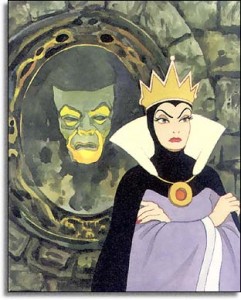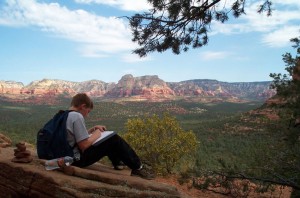 Mirrors are pretty powerful. Sometimes they show us what we don’t want to see and other times they might reward us for perfectly reflecting the person we believe ourselves to be. We know the reflection is unbiased, and unable, to alter the truth we are. People are different.
Mirrors are pretty powerful. Sometimes they show us what we don’t want to see and other times they might reward us for perfectly reflecting the person we believe ourselves to be. We know the reflection is unbiased, and unable, to alter the truth we are. People are different.
Often people will tell you what you want to hear or you will not accurately interpret what they are saying to you. Writing is a way to taking to yourself and making the thoughts you have reflect back your ideas. Reflection in words is a great way to better understand a conversation you are having inside your head, because like a mirror, it can put those ideas before you in a physical form. Like looking at yourself in a mirror, you can learn from the experience.
At Prescott College I got a boatload of “experiential learning theory” in all of my classes. Not just in the way the course were delivered, but in how we were asked to reflect, in our journals, about what we had seen, felt, and wondered about.
And you can imagine how that looked in the classes I took called educational psychology, curriculum design, educational methods, alternative methods in higher education, group processes and a number of education-like classes. In those classes the amount of thinking/reflecting/writing about the Kolb model (experiential model) was not only what we did, is was in many cases what we were studying. No wonder my head is still spinning trying to figure out what works best.
At Prescott College they told me, “We will explore how writing shows us who we are. Writers do not sit down to the page simply to “write about something” but rather to “understand something.”
In the 9x9x25 Challenge we are not just sharing ideas, or writing about a thing we do. We are writing about it and coming to a better understanding of it and how it works. I think that some of the participants have already told me this and that the value of the personal learning it creates is clear to them. Part of me wants to jump for joy at the amount that has been shared in the Webletter, but another part of me wants to focus on the learning that each writer is doing as they write. Of course this all takes practice right? I mean it is exactly what we ask our students to do: write something to show me your understanding. The fact that all this work is shared and a way for others to learn is secondary. It is that mirror that is really the most powerful part of the challenge.
I mention all this because I am already pondering how the 9x9x25, if it is even called that, will look next year and how it will be presented. I am wondering how to leverage these reflections that are created by our faculty into something that is transformative. Something that makes a difference. Something that gets tried, and used, and reshaped. There is simply letting it go and hoping that some of the writing has legs and gets talked about in hallways and a meeting or two.
And there are these few interactions that have happened with the Northwestern Michigan College instructors. How dos the interaction with them shape our understanding of teaching and learning? Might they simply share a good idea? Might one of them become a person who we interact with in other ways? How can these instructors help us next year? How might we help them? What about other schools or other writing venues like Faculty Focus? Will any of the participants next year submit the writing they do to be published by Faculty Focus?
We will see where it goes. And most importantly we will see how we have changed when we gaze into the mirror of our writing.
Writing has worked for me as a student at Prescott College and as an English teacher. As a teacher I was able to help student be in wonderful places to write. Below are some of them.






